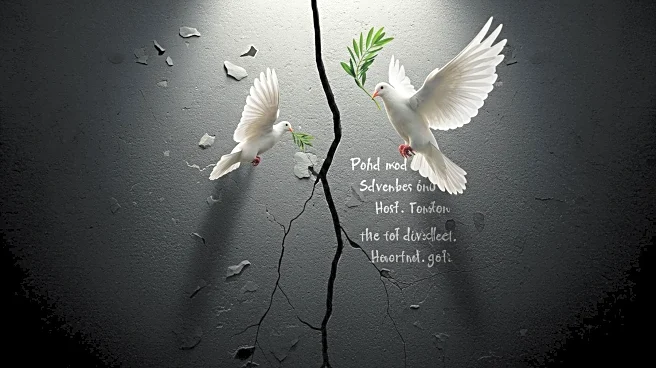What's Happening?
Nineteen European Union countries have issued a statement condemning Israel's restrictive aid rules in Gaza, which they argue exacerbate the humanitarian crisis in the region. The statement criticizes new registration requirements for international NGOs, which could force them to leave the Occupied Palestinian Territories (OPTs), worsening the humanitarian situation. The EU countries urge Israel to authorize all international NGOs and facilitate the entry of aid into Gaza. The statement also calls for the protection of humanitarian spaces and condemns the use of lethal force at aid sites, where many Palestinians have reportedly been shot while trying to access aid.
Why It's Important?
The condemnation from EU countries highlights the growing international concern over the humanitarian situation in Gaza. The restrictive aid rules could lead to a significant reduction in the availability of essential services and support for the Palestinian population, potentially leading to further displacement and suffering. This situation also poses a challenge to Israel's international relations, as it faces criticism from key European allies. The humanitarian crisis in Gaza is a critical issue that could influence global perceptions of the Israeli-Palestinian conflict and impact future diplomatic efforts in the region.
What's Next?
The EU's call for action may lead to increased diplomatic pressure on Israel to revise its aid policies. International organizations and humanitarian groups are likely to continue advocating for unrestricted access to Gaza to provide necessary aid. The situation may also prompt further discussions within the United Nations and other international bodies to address the humanitarian needs in Gaza and seek a resolution to the ongoing conflict. The response from Israel and its allies will be crucial in determining the next steps in this complex geopolitical issue.
Beyond the Headlines
The situation in Gaza raises broader questions about the ethics of humanitarian aid and the responsibilities of occupying powers under international law. The potential withdrawal of NGOs could have long-term impacts on the region's development and stability. Additionally, the crisis underscores the need for a comprehensive peace process that addresses the root causes of the conflict and ensures the protection of human rights for all parties involved.











